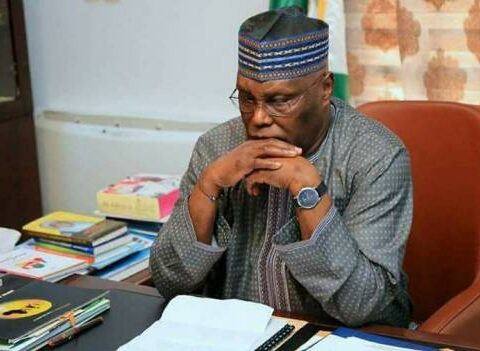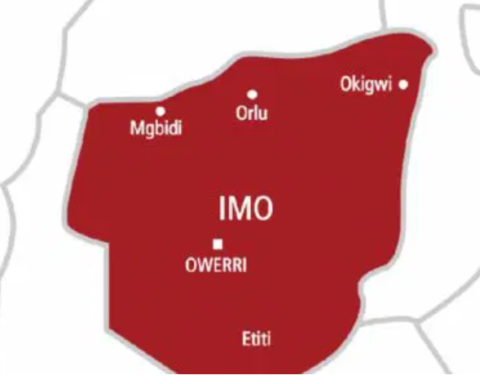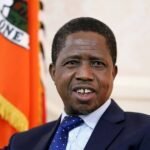The state visit by President Bola Tinubu,to France last week, falls fairly within the realm of diplomatic interaction among nations. In this case, the two presidents involved; Emmanuel Macron of France and Tinubu from Nigeria, needed the distraction and the international attention attendant to such high-level diplomatic engagement.
As should be expected, the “rapproachmor” between France and Nigeria, presided over by Macron and his guest, engendered ample photo ops and sundry formalities, such as the signing of Memoranda of Understanding (MOUs). These documents signify intentions in sectoral collaborations. Great.
Interestingly, while Nigeria came away from the interaction, with a lot of MUOs, enthusiastically carried and waved, by government officials, as if they were lottery tickets, France had the opening of a branch of Zenith Bank in Paris to show.
Beyond the photo ops and formalities, however, reality awaits outside the door. Any possible serious love affair between France and Nigeria is bound to receive shrugs of derision and shock across Africa, including in Nigeria. The reason is obvious; France has a very unenviable record to hold up, in any new attempt to forge a serious relationship with an African country. What word of affection or enticement can France really utter, or offer, to an African country, different from what it represents across centuries?
Her record in Africa speaks of love at its most repressive, repulsive form. Indeed, when it comes to Africa, France can rightly be described as a predator,a lover without conscience. An embrace with her is not just dangerous, it almost always results in asphyxiation.
Politics among nations in the present era, obviously makes it inevitable for African countries to relate with France and various other vicious colonialists. The guiding sign post for any new relationship must however, never be missed; buyer beware!
The history of the relationsship between France and Africa is too chilling to be re-constructed meaningfully in two or three days of colourful media extravaganza of a state visit. Nigeria ought, ordinarily, to know the narrative well. But then, the Tinubu presidency will clutch at any straw, to show that it is up and doing.
An opportunity, such as a state visit to Paris, presented a good leeway to step away from the crisis of escalating economic woes at home. Standing shoulder to shoulder with Macron in Paris, against the backdrop of exquisite classical architecture that dots the city, is by far preferable to grappling with soaring inflation and grappling at home with tales by moonlight at Port Harcourt Refinery. A purportedly refurbished state refinery packing up less than forty eight hours after it was formally celebrated as coming back to life,cannot be a source of joy for a president.Being hosted in Paris is definitely better.
Even for the attraction of going to Paris, hugging France at this very moment is a rather insensitive and diplomatically expensive thing for Nigeria to do. Who really advises Tinubu on foreign affairs? Who could have proposed a loud state visit to Paris by a Nigerian leader at this juncture?
Of course, France is a super power, so classified. It is one the wielders of veto power at the United Nations – the ultimate symbol of global power and influence, till date. There is no doubt that the European country of 68 million citizens, is a force to be reckoned with, in a broad variety of sectors, spanning manufacturing, sports, fashion, trade etc.
The history of France in Africa and the nightmarish relationship between Paris and post-colonial African countries,however, render whatever beauty France parades, an anathema to Africa. Post-colonial Francophone African countries have been struggling through the years to break free from the suffocating hold of France, their former colonial master. The more they struggle to take their destiny in their own hands, the more determined and desperate France strives to keep its grip.
Not few leaders of Francophone African countries have either lost power, or lost their lives, in the bid to assert independence from France. For France, it does appear that the two choices for its former colonies is either to remain tied to its apron string, or death. Literally.
Resolved,at last, to go all out to liberate themselves, Mali, Niger and Burkina Faso, otherwise known as the Alliance of Sahel States (ASS), struck out in the last year or so, in what is, perhaps, the most determined joint repudiation of continued French domination. Chad and Mauritania are also in the Sahel Alliance axis.
The Republic of Senegal, under the young, dynamic President Bassirou Diomaye Faye, 44 years old, elected in April 2024, may not yet count in the fold of the Alliance, but there is no doubt where his inclination is.
Just a few days ago, Senegal marked the 80 years anniversary of the French massacre of its citizens. The anniversary is not merely symbolic. It speaks of a resurgent spirit in Senegal, one that does not intend to forget. In marking this dark incident – one among several such dark patches of murder and atrocities in Africa committed by France and various other European colonialists – Senegal is asking France to come clean and own up to crime against Africa and humanity.
Then, a few days ago, precisely last Thursday, Chad unilaterally abrogated a long-standing military pact with France. That brings to an end one of the potent formal instruments through which France controlled supposedly independent African countries that were its former colonies. Clearly, a difficult era is inevitably coming to an end in Africa. It may yet be a long way to full freedom, but the recent developments have been monumental.
Now, this is the juncture Tinubu, president of Nigeria and leader of the Economic Community of West African States (ECOWA), chose to jump into a curious embrace with France. It is bad enough that the emergence of Tinubu at the presidency of Nigeria in 2023 was followed, almost immediately, by Burkina Faso, Niger and Mali, withdrawing from active participation in ECOWAS. A hopelessly conceived attempt to sanction the vehement three, splashed mud on the face of the Tinubu leadership of the sub-regional union, forcing them to back track. Till date, there is yet no viable strategy to convince the countries that turned their back on ECOWAS that the union is serious.
For good measure, there has been an unbelievable turn around in the economic and social development fortune of the three Sahel Alliance countries. The impression is therefore, rife, that ECOWAS has largely become a puppet of Western powers and is rather antithetical to real development of the sub-region. Burkina Faso, Niger and Mali boldly stand as testimonies.
After emerging from his recent warm embrace with France, with powder and lipstick all over his face, what will Bola Tinubu as leader of ECOWAS be telling Mali, Niger, Burkina Faso, Chad and Senegal? How now, does Nigeria as the supposed leader of the sub-region gain, or keep the trust of brother countries that are doing everything possible to keep a distance from Paris?
It will be left to see the level of cohesive leadership that Nigeria under Tinubu will provide subsequently,to ECOWAS. It does not take any challenging analysis to conjecture the disposition of the Sahel Alliance states. For them, the snide remark will be; with an ECOWAS leadership like this….
It will be sad and strange, if Tinubu and his international relations advisers did not appreciate that the choice they made in hugging France has a flip side. That flip side does not promote cohesion and trust in ECOWAS. Indeed, it renders the once promising union, at best, inoperative.
EZEANI is a renowned journalist and media consultant. Trained at the University of Lagos, Nigeria and the University of Maryland, College Park, USA, he is a widely acclaimed columnist and veteran newspaper editor.



























